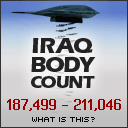Principles of International Law Recognized in the Charter of the Nüremberg Tribunal and in the Judgment of the Tribunal, 1950.
Principle I
Any person who commits an act which constitutes a crime under international law is responsible therefor and liable to punishment.
Principle II
The fact that international law does not impose a penalty for an act which constitutes a crime under international law does not relieve the person who committed the act from responsibility under international law.
Principle III
The fact that a person who committed an act which constitutes a crime under international law acted as Head of State or responsible Government official does not relieve him from responsibility under international law.
Principle IV
The fact that a person acted pursuant to order of his Government or of a superior does not relieve him from responsibility under international law, provided a moral choice was in fact possible to him.
Principle V
Any person charged with a crime under international law has the right to a fair trial on the facts and law.
Principle VI
The crimes hereinafter set out are punishable as crimes under international law:
(a) Crimes against peace:
(i) Planning, preparation, initiation or waging of a war of aggression or a war in violation of international treaties, agreements or assurances;
(ii) Participation in a common plan or conspiracy for the accomplishment of any of the acts mentioned under (i).
(b) War crimes:
Violations of the laws or customs of war include, but are not limited to, murder, ill-treatment or deportation to slave-labour or for any other purpose of civilian population of or in occupied territory, murder or ill-treatment of prisoners of war, of persons on the seas, killing of hostages, plunder of public or private property, wanton destruction of cities, towns, or villages, or devastation not justified by military necessity.
(c) Crimes against humanity:
Murder, extermination, enslavement, deportation and other inhuman acts done against any civilian population, or persecutions on political, racial or religious grounds, when such acts are done or such persecutions are carried on in execution of or in connexion with any crime against peace or any war crime.
Principle VII
Complicity in the commission of a crime against peace, a war crime, or a crime against humanity as set forth in Principle VI is a crime under international law.
International Committee of the Red Cross
C.O. Resources
To learn more about how to be a conscientious objector, the Selective Service System, and issues related to a military draft, click on the website hyperlinks in the above article, or contact the following organizations by phone, fax, mail, or email:
Episcopal Peace Fellowship (EPF): anyone wishing to learn about or help with the work of the EPF Working Group on Conscientious Objection should contact the Rev. R. William Carroll at bcarroll@sewanee.edu.
The GI Rights Hotline: 405 14th St., Suite #205, Oakland, CA 94612; 800-394-9544 or 215-563-4620; Fax 510-465-2459; girights@objector.org
Center on Conscience & War (NISBCO): 1830 Connecticut Ave., N.W., Washington, DC 20009; 800-379-2679 or 202-483-2220; nisbco@nisbco.org
Central Committee for Conscientious Objectors (CCCO): 630 20th St., #302, Oakland, CA 94612; girights@objector.org
Military Task Force of the National Lawyers Guild: 318 Ortega St., San Francisco, CA 94122; 415-566-3732Military Families Speak Out (MFSO): P.O. Box 549, Jamaica Plain, MA 02130; 617-522-9323
U.S. Selective Service System web page about conscientious objection
What President Bush's and Senator Hillary Clinton's church (United Methodist) has to say
United Methodists and War
General Convention
Thursday, February 08, 2007
Lieutenant Ehren Watada
Labels:
"Just War",
crimes against humanity,
First Amendment,
Nuremberg,
Red Cross,
Watada
Subscribe to:
Post Comments (Atom)


















No comments:
Post a Comment